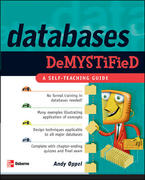Question
C Programming & Data Structures: Need help fixing code. My program is to implement a stack using two instances of queue data structures. It compiles
C Programming & Data Structures: Need help fixing code.
My program is to implement a stack using two instances of queue data structures. It compiles just fine, but when I try running it, it says "Segmentation fault 11". I think the issue is with the init functions. but I can't figure out how to change them to get it to work.
Code must be able to compile using the command: "gcc -g -Wall -std=c99 -o stack_from_queue stack_from_queue.c". Code also must stay in a single file!
Here is the code I have:
#include
#ifndef __TYPE #define __TYPE #define TYPE int #endif
/******* structures *********/ /* link structure definition to implement singly linked lists for Queues*/ struct link { TYPE value; struct link *next; }; /* definition of queue structure using a linked list for implementation*/ /* using LL requires keeping track of head & tail of the queue*/ struct listQueue { struct link *firstLink; struct link *lastLink; }; /*definition of struct used to implement a stack using 2 queues */ struct stack { struct listQueue *q1; struct listQueue *q2; };
/******* QUEUE FUNCTION DEFINITIONS **********/ /*function to initialize the queue */ struct listQueue* queue_init(struct listQueue *q) { struct link *qlnk = (struct link *)malloc(sizeof(struct link)); assert(qlnk != 0); qlnk->next = 0; q->firstLink = qlnk; q->lastLink = qlnk; return q; } /* enqueue function--adds new link to back of the queue */ void queue_addBack(struct listQueue *q, TYPE e){ struct link *newL = (struct link *) malloc(sizeof(struct link)); assert(newL != 0); /*allocate memory for new link*/ newL->value = e; newL->next = 0; /*set equal to NULL */ q->lastLink->next = newL; /*make tail ptr point to new link*/ q->lastLink = newL; } /* function returns value stored in firstLink @ front of the queue*/ TYPE queue_getFront(struct listQueue *q){ assert(q->firstLink != q->lastLink); return q->firstLink->next->value; /*get element in front of queue*/ }
/*dequeue function--removes queue front value */ void queue_removeFront(struct listQueue *q){ assert(q->firstLink != q->lastLink); struct link *temp = q->firstLink->next; if(q->firstLink->next == q->lastLink){ q->firstLink = q->lastLink; q->firstLink->next = NULL; } else { q->firstLink->next = q->firstLink->next->next; } free(temp); temp = NULL; } /*function to check queue is empty*/ int queue_isEmpty(struct listQueue *q){ if(q->firstLink == q->lastLink){ return 1; } else { return 0; } } /**************** STACK FUNCTION DEFINITIONS ****************/ /*initialize stack*/ struct stack* stack_init(){ struct stack *s = (struct stack *)malloc(sizeof(struct stack)); queue_init(s->q1); queue_init(s->q2); return s; }
/*checks if stack is empty. returns 1 if empty, otherwise returns 0*/ int stack_isEmpty(struct stack *s){ if((queue_isEmpty(s->q1) != 0) && (queue_isEmpty(s->q2) != 0)){ return 1; /*return 1 if empty */ } else { return 0; } } /*free memory */ void stack_Free(struct stack *s){ while(stack_isEmpty(s) != 1){ queue_removeFront(s->q1); queue_removeFront(s->q2); } free(s); }
/*push a new value onto the stack--i.e. add a value to the stack*/ void stack_Push(struct stack *s, TYPE d){ /*push value into empty q2*/ queue_addBack(s->q2, d); /*push all remaining elements in q1 to q2*/ while(!queue_isEmpty(s->q1)){ queue_addBack(s->q2, queue_getFront(s->q1)); queue_removeFront(s->q1); } /*swap names of the 2 queues*/ struct listQueue *temp = s->q1; s->q1 = s->q2; s->q2 = temp; }
/*gets & returns the value stored @ top of stack*/ TYPE stack_getTop(struct stack *s){ /*check if stack is empty*/ assert(!stack_isEmpty(s)); return queue_getFront(s->q1); }
/*remove the top element from the stack*/ void stack_Pop(struct stack *s){ /*checks if stack is already empty*/ assert(! stack_isEmpty(s)); /*removes top of stack*/ queue_removeFront(s->q1); }
/********************* int main *************************/ int main() { struct stack *s = stack_init(); int n = 6; int m = 3; /* Test stack-from-queues implementation by pushing, checking the top, and popping. */ printf(" ============================================= "); printf("== Testing stack-from-queues implementation "); printf("============================================= ");
printf("== Pushing some onto stack-from-queues:"); for (int i = 0; i < n; i++) { int val = 2 * i; printf(" %4d", val); stack_Push(s, val); } printf(" "); printf("== Popping some from stack-from-queues:"); for (int i = 0; i < m; i++) { int top = stack_getTop(s); printf(" %4d", top); } printf(" "); printf("== Pushing more onto stack-from-queues:"); for (int i = n; i < n + m; i++) { int val = 2 * i; printf(" %4d", val); stack_Push(s, val); } printf(" "); printf("== Dequeueing rest from stack-from-queues:"); while (!stack_isEmpty(s)) { int top = stack_getTop(s); stack_Pop(s); printf(" %4d", top); } printf(" "); stack_Free(s); return 0; }
Step by Step Solution
There are 3 Steps involved in it
Step: 1

Get Instant Access to Expert-Tailored Solutions
See step-by-step solutions with expert insights and AI powered tools for academic success
Step: 2

Step: 3

Ace Your Homework with AI
Get the answers you need in no time with our AI-driven, step-by-step assistance
Get Started


